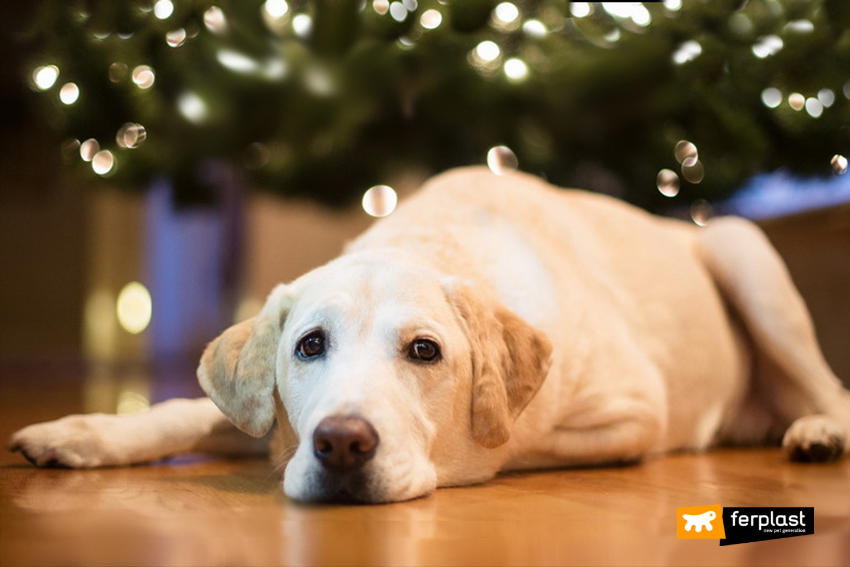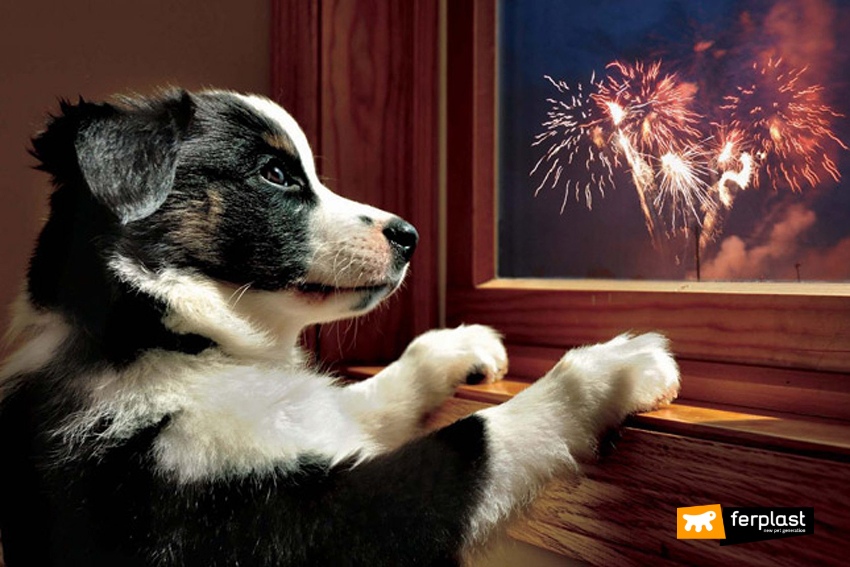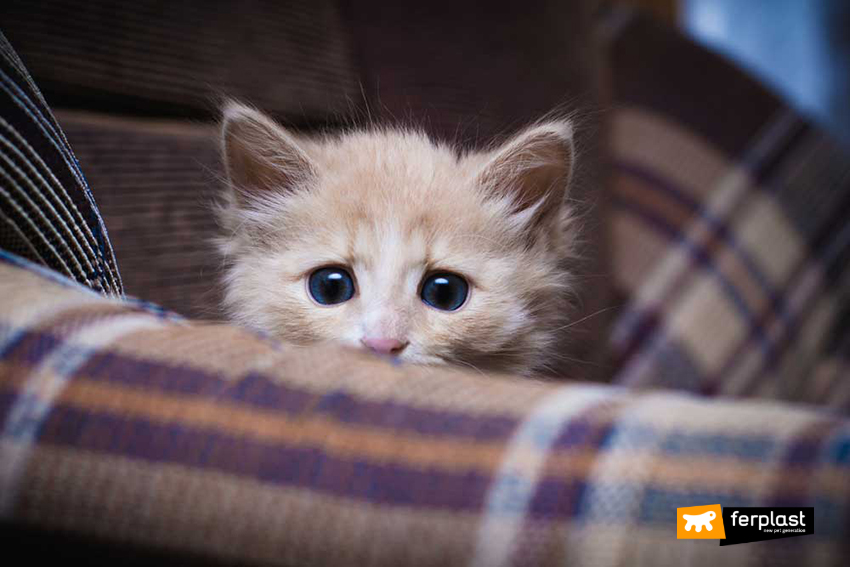Pets, whether they are cats or dogs, have an aversion to firecrackers and firework displays. Seeing as we are nearing the end of the year, we need to pay plenty of attention to our furry buddies – they could have a bad reaction to all the hoopla. Here’s why they are so afraid of fireworks.
New Year’s festivities are just around the corner. Some of you will spend this long and fun night dining and partying with friends either at home or in some nice restaurant, and then head outdoors to enjoy the firework displays. But what about the pets? If we humans see the New Year celebrations as a favourite moment, animals decidedly do not.
Hours of loud bangs and whistles cause a great deal of stress in domestic animals. When the sharp sounds explode and there is constant flashing of lights, they tend to suffer from high levels of anxiety that will make them whine, pee (or worse) indoors and desperately seek cover from the acoustic assault. The Italian branch of the World Wildlife Fund estimates that some 5,000 animals per year die as a result of all the boisterous yearend celebrations, 1,500 of them are cats and dogs.
Why are animals afraid of fireworks?
1) THEY HAVE VERY SENSITIVE HEARING. Cats and dogs have a highly developed sense of hearing, far more refined than that of human beings. Every bang we hear, they hear 4 times louder.
2) INHERITED FEAR. Just like their physical characteristics, dogs and cats have also inherited the fears and phobias of their elders, and they will, in turn, transmit them to their own offspring. If mother cat reacted badly to noise (not just explosions from fireworks, but any loud noise) her kittens are very likely to have the same reaction.
3) FAULT OF THE OWNERS. If a dog or a cat has been terrified by a loud noise (like a shot fired by a nearby hunter, or loud clapping too close to their ears), it will most likely have a bad reaction to loud noise of any sort for the rest of its life.
4) IMITATION. It also sometimes happens that a young puppy or kitten will get agitated when his siblings do. Anxiety in pets can be imitative. If you go to a friend’s house and their dog is a timid one, then it might be a good idea to get your dog into another room.
To help your pet stay safe and out of harm’s way on the last night of the year, you should make sure it is not alone. If you have to, get a pet sitter for the night. It’s best to keep pets at home, in a familiar room where the outside firecrackers and fireworks are less loud, with the shutters closed, a bowl full of favourite food and plenty of toys and comfort so that its attention can be easily distracted from the noise. Don’t be overly protective when the bangs go off, let them know there’s nothing to be alarmed about. It’s also a good idea to create a nice safe hiding place under the bed for the cat (or even the dog!) to hide in!
Just a bit of sensitivity is all you need to make sure your pet has a lovely evening too!



